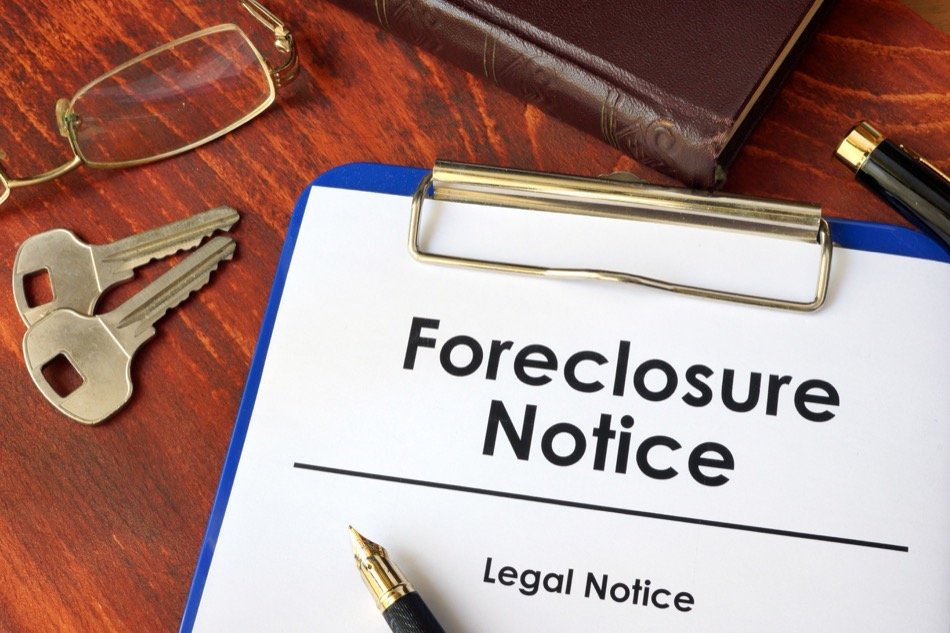What to Know About the Foreclosure Process
Posted by Justin Havre on Wednesday, November 27th, 2019 at 7:55am.
 When Sunset Ridge homeowners find themselves unable to make their monthly mortgage payments, they may have to begin the foreclosure process. Foreclosure is a process existing in both the United States and Canada, and ultimately results in a person losing possession of their home. There are different rules for foreclosure in Canada, so it's important for Canadian homeowners to understand how the foreclosure process works in the country.
When Sunset Ridge homeowners find themselves unable to make their monthly mortgage payments, they may have to begin the foreclosure process. Foreclosure is a process existing in both the United States and Canada, and ultimately results in a person losing possession of their home. There are different rules for foreclosure in Canada, so it's important for Canadian homeowners to understand how the foreclosure process works in the country.
For informational purposes only. Always consult with an attorney, tax, or financial advisor before proceeding with any real estate transaction.
How Does the Foreclosure Process Work in Canada?
The term foreclosure refers to the legal process a lender can begin if a borrower, or homeowner, fails to make monthly payments on their mortgage. Homeowners should note a lender is probably not going to begin the foreclosure process simply because they missed one payment, or they made one late payment on their mortgage. Rather, lenders are more likely to start the process if a homeowner has failed to pay their mortgage for three months in a row. Most homeowners will know foreclosure proceedings have begun because the lender will send a letter in the mail, which provides them with notice of impending foreclosure.
The exact process of foreclosure can vary for Canadian residents based on the province they live in. Traditional foreclosure is more common in certain provinces, such as British Columbia, Alberta, Quebec and others. These provinces require the courts to get involved in the foreclosure process, which makes it a lengthy and expensive process. In other provinces, such as Ontario, Newfoundland and others, a "Power of Sale" is more common. This process does not require court involvement. Rather, the homeowner is provided with a notice they must come current with their payments within a specific time period. If the homeowner makes the payments, they may no longer risk losing their property. If they do not, they will be served a repossession of property notice. The "Power of Sale" process is quicker and in many ways, more effective than foreclosure.
Foreclosure as a Last Resort
Foreclosure is a last resort for most mortgage lenders in Canada. This is due to the fact the traditional foreclosure process requires the mortgage lender to obtain the permission of the court before taking possession of the individual's home. Court involvement in the foreclosure process extends the time period it takes to complete it, and makes it a very costly endeavor for mortgage lenders.
Since traditional foreclosure is a significant undertaking for all parties involved, most lenders in Canada will attempt to come to a resolution prior to beginning the foreclosure process. Homeowners who have missed one payment or do not feel they can continue to make their payments in the future should contact their mortgage lenders to discuss any possible options.
Does Everyone Who Enters the Foreclosure Process Lose Their Home?
The mention of the word "foreclosure" often makes homeowners shudder. They conjure up images of the mortgage lender sending large red notices in the mail, and handing their keys over to the bank once again. However, not everyone in Canada who enters the foreclosure process loses their property. In fact, there are many factors considered during the foreclosure process, and these factors will ultimately help determine whether or not a person can keep their home after the foreclosure process is complete. Some factors taken into account include an individual's willingness to come to an agreement with the lender, and the homeowner's specific financial circumstances. Homeowners who may face foreclosure but want to keep their home should work with a legal team to defend their property and come to an advantageous resolution for all parties involved.
How to Avoid Foreclosure in Canada
Obviously, the best possible situation is to avoid the foreclosure process altogether. These tips can help Canadian homeowners avoid foreclosure:
- Actively participate in the lending process when obtaining a mortgage. Understand the specific terms of the loan, and verify the loan can be paid back in a timely manner.
- Be aware of available home loan modifications. These modifications can help make payments more manageable.
- Opt to sell the property if it becomes too expensive to maintain. Selling a home and purchasing a smaller property is a better option than missing payments on the mortgage for the home.
Foreclosure can be a very stressful and deeply personal process for those who are involved in it. It is important for homeowners who are facing foreclosure to seek the assistance they need, as there are resources available in Canada to help prevent foreclosure from happening.
For informational purposes only. Always consult with an attorney, tax, or financial advisor before proceeding with any real estate transaction.
